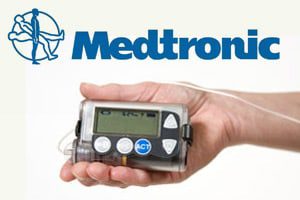
Device maker, Medtronic Inc., was just issued a warning letter from the U.S. Food and Drug Administration (FDA) concerning its Northridge, California diabetes facility. The letter was received on September 19 and discussed procedures involving “corrective and preventative action, complaint handling processes, process validation, process monitoring, design control and general good manufacturing processes,” according to […]
 Device maker, Medtronic Inc., was just issued a warning letter from the U.S. Food and Drug Administration (FDA) concerning its Northridge, California diabetes facility.
Device maker, Medtronic Inc., was just issued a warning letter from the U.S. Food and Drug Administration (FDA) concerning its Northridge, California diabetes facility.
The letter was received on September 19 and discussed procedures involving “corrective and preventative action, complaint handling processes, process validation, process monitoring, design control and general good manufacturing processes,” according to an email from Amanda Sheldon, director of public relations for Medtronic’s diabetes division, to MassDevice.com.
The device maker has been making news in recent months over allegations regarding significant injuries associated with its Infuse bone graft product. Medtronic has sought preemption bids to dismiss lawsuits that have been brought over Infuse and the courts have denied those requests indicating that because Medtronic has promoted Infuse for unapproved uses and because this led to the off-label use of Infuse, the device maker is not protected under preemption.
Preemption is legal concept that a number of medical device makers have used in liability lawsuits that have been filed over devices that have received FDA approval, MassDevice.com previously reported.
In response to one such preemption request, G. Murray Snow, U.S. District Court for Arizona, wrote that the effect of preemption “vanishes when the plaintiff brings a claim against a manufacturer that arises out of a use that has not be reviewed by the FDA but has been promoted by the manufacturer…. Any medical device manufacturer that misleadingly promotes its products for uses never approved by the FDA, and then fails to report to the FDA significant adverse events associated with those non-approved uses of the device, should be held accountable for severe injuries caused by the device,” MassDevice.com previously reported.
Infuse is a synthetic—genetically engineered—recombinant human Bone Morphogenetic Protein (rhBMP-2) that received FDA approval in 2002 for specific uses. Infuse was designed to stimulate spine growth in patients suffering from lower spinal degenerative disease and is approved for use in one type of spinal surgery and some dental procedures. Infuse is not approved for use on the upper, or cervical spine; however, the bone graft product is broadly used off-label for this purpose. On July 1, 2008 the FDA issued a notification warning about the product’s ties to serious complications when used in cervical spinal fusions.
The way in which Medtronic has marketed Infuse has been the focus of increasing controversy with concerns raised over the way in which Infuse research was conducted, including that research was Medtronic-funded. Medtronic has been accused of promoting Infuse off-label, of minimizing the device’s risks, and of overstating the product’s benefits. This led to a Senate probe, the agency warning, and at least two independent studies. Also, According to a Stanford University study published in the September 4, 2013, edition of The Journal of Bone & Joint Surgery, a large dose—at least 40 milligrams—of Infuse is tied to increased risks of new cancer.


